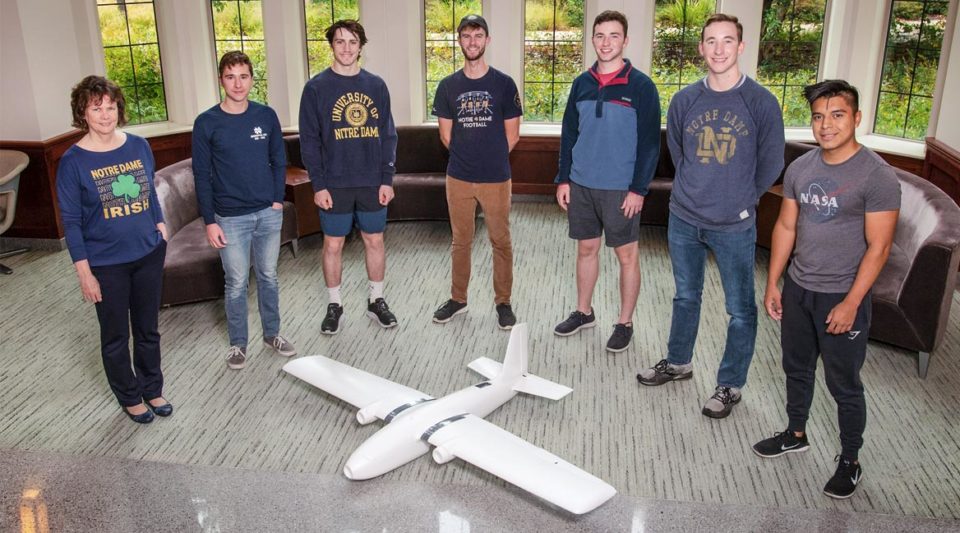A team of Notre Dame undergraduate students has been selected to participate in the 2021 NASA University Student Research Challenge.
Their project, Dronehook, is a fixed-wing package retrieval system that can pick up items from remote locations in a simple and energy-efficient fashion.
The team includes Konrad Rozanski, team leader and electrical engineering major; Dillon Coffey, who is majoring in computer science and environmental science; Nicholas Orr, an accounting major; electrical engineering majors Adam Orr, Matthew Peine and Nathan Sanchez; Bruce Smith, who is studying physics; and Nathaniel Tran, who is studying philosophy and finance.
The Dronehook offers a unique twist on package-retrieval technology. Most drones are multi-copter vehicles, with numerous propellers that make them highly maneuverable but energy inefficient. Fixed-wing vehicles can fly faster and longer on a single battery charge.
How does Dronehook work? A user requests pick-up at a general location and releases a balloon in the air. Tethered to the balloon are the package that is being sent, a small GPS module, and a low-powered radio transmitter. The transmitter broadcasts a signal that syncs with the drone’s computer vision system to locate the balloon. Then Dronehook flies onto the balloon, snagging the line and pulling the package into its fuselage.
The NASA University Student Research Challenge supports new aeronautics concepts that are relevant to NASA Aeronautics. Selected teams are awarded up to $80,000 to advance their proposed designs by demonstrating their novel concept.
“We’re excited to complete the project,” said Rozanski. “Dronehook offers a solution for individuals in any location to use drone delivery without the overhead of owning and operating a drone or wondering if their drone can make it to the destination and back unless there are automated battery swapping machines along the way.”
“Being invited to participate in this challenge is no small feat,” said Jane Cleland-Huang, professor of computer science and engineering and the team’s faculty advisor. “NASA only chooses a small handful of winners each year.
“We’re very proud that due to the creativity, engineering skills, and hard work from our students, Notre Dame is part of that group.”
— Nina Welding, College of Engineering
